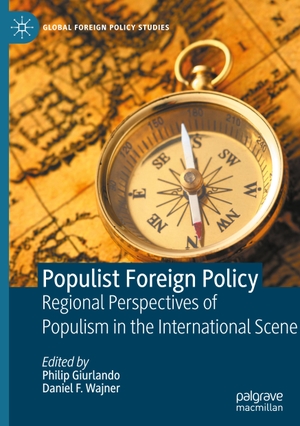Für statistische Zwecke und um bestmögliche Funktionalität zu bieten, speichert diese Website Cookies auf Ihrem Gerät. Das Speichern von Cookies kann in den Browser-Einstellungen deaktiviert werden. Wenn Sie die Website weiter nutzen, stimmen Sie der Verwendung von Cookies zu.
Cookie akzeptieren
Populist Foreign Policy
- Springer International Publishing
- 2023
- Gebunden
- 308 Seiten
- ISBN 9783031227721
This book explores the global phenomenon of populism in relation to states' foreign policy, addressing two key questions: How do populists mold their foreign policies? What are the domestic and external factors that enable and constrain it? To this end, the book brings together a diverse group of scholars who have already researched on populist foreign policies (PFP) in specific countries to contribute shared chapters that examine their drivers, patterns, and effects according to distinctive regions: North America, Western Europe, Southern Europe, Central-Eastern Europe, Latin America, South-East Asia, the Middle East, Oceania, and Africa. The empirical analysis sheds new light on how populists' distinctive conception of a world divided antagonistically between "the people" and "the elites" influences behaviour towards multilateral organizations such as the United Nations and the European Union, and regional or global hegemonic powers like the United States, Germany, Russia, and China. The book also shows how ideas related to identity, ideology, status and emotions, impinge on populists' conduct vis-à-vis other international actors, and how national and international structures affect the implementation of populist foreign policies in the regional, interregional, and global arenas. The wide geographical diversity and regional representation are also valuable in identifying cultural similarities
Mehr
Weniger
zzgl. Versand
in Kürze